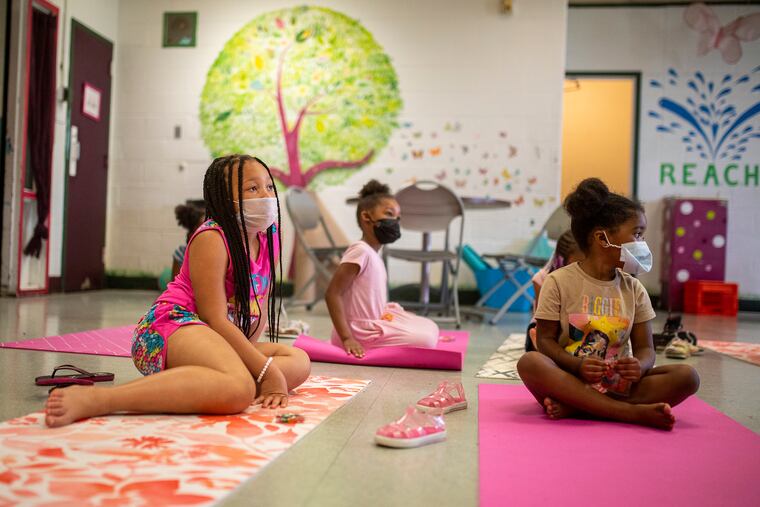Some kids are struggling to adjust to fewer COVID-19 restrictions. Here’s my advice as a pediatrician and parent. | Opinion
As precautions relax, it can be hard for children to readjust to this new normal, when the pandemic has become their version of normal.

As a pediatrician, nearly every day during the pandemic I saw children who struggled with depression, suicidal ideation, or eating disorders or were failing at school. For these patients, the social isolation was crippling, and they begged for it to be over.
But in some of my patients who had anxiety before COVID-19, their symptoms improved during the pandemic. The restrictions enabled them to sidestep difficult social situations, stay close to their parents, and avoid phobias.
While most of the country celebrates the reopening of society that immunizations have allowed us, my patients with anxiety are suffering. In my own home, we did such a good job of teaching our children about preventing COVID-19 over the past 16 months that measures like social distancing and masking became normal. Now, one of my children is very concerned about the relaxing of rules that became dogma and does not want to stop masking or start visiting friends’ homes. This makes sense: While the past 16 months is a small blip in the timeline of my life, it takes up a much larger piece, proportionally, of my children’s memory.
» READ MORE: The danger of ‘wait and see’ when it comes to vaccines for kids | Expert Opinion
As pandemic precautions relax, it can be hard for children to readjust to this new normal, when the pandemic has become their version of normal. This period of time may be just as hard for kids as it was for me to adjust to a pandemic lifestyle in 2020.
If your child struggles with anxiety and has had worsening symptoms lately, such as irritability, tantrums, frequent worrying, clinginess, sleep disturbance, and social avoidance, know that you and your child are not alone. Fortunately, there are ways that you can help with this transition.
First, validate your child’s feelings. Many of us have mixed emotions about removing some of the COVID-19 precautions, so some children may, too. Ask your child open-ended questions, as their worries may be different from your own or what you expect. Say, for example, “How do you feel without your mask on with your friends?” This allows you to open a conversation and guide your child to focus on the positive aspects of their concerns. If they say they are worried they will get COVID-19, you can counter with: “I know your friends would not want you to get sick, so they only play when they are feeling healthy.” This lets you focus on the things we can control, which we know work: handwashing, getting immunized, and staying home when sick. These conversations show kids that worrying is normal, allowing them to take comfort in what we are doing to stay healthy and celebrate the successes we have achieved.
» READ MORE: Parents grapple with protecting kids who can’t get a COVID-19 vaccine as the Philadelphia region reopens
Second, don’t just dive right into pre-pandemic life. It may help your child to ease into social activities by planning smaller events with close family and friends in a comfortable environment before embarking on larger parties or travel. These smaller situations help them learn to master their worries and decrease their anxiety before facing a bigger stressor. When your child steps out of their comfort zone, praise their efforts, regardless of the outcome.
Third, work on coping skills together. Many of us adopted practices such as mindful breathing, journaling, or nature walks during the pandemic, and we should continue to incorporate these into our lives even as we resume some of our pre-pandemic routines. Practicing these calming behaviors with your child will have benefits for you both and model for children how anxiety may come and go, and we all need tools to help us cope.
The start of summer 2021 has meant a resumption of the pool parties, concerts, and barbecues we yearned for in 2020. But before filling our calendars, we should check in with our shy, timid, introverted, and anxious kids, to guide them through this transition. If their worries become excessive or start to impair functioning, talk to your pediatrician. In most cases, though, with a little preparation, practice, and room to express themselves, children can tame their worries and celebrate summer despite the uncertainties of the ongoing pandemic.
Katie Lockwood is a primary care pediatrician at Children’s Hospital of Philadelphia (CHOP). She is the director of behavioral health education in the pediatric residency program at CHOP.